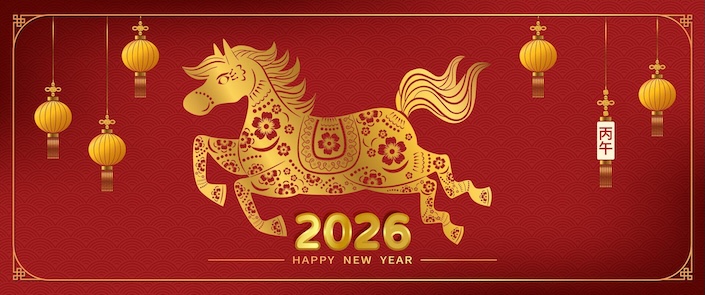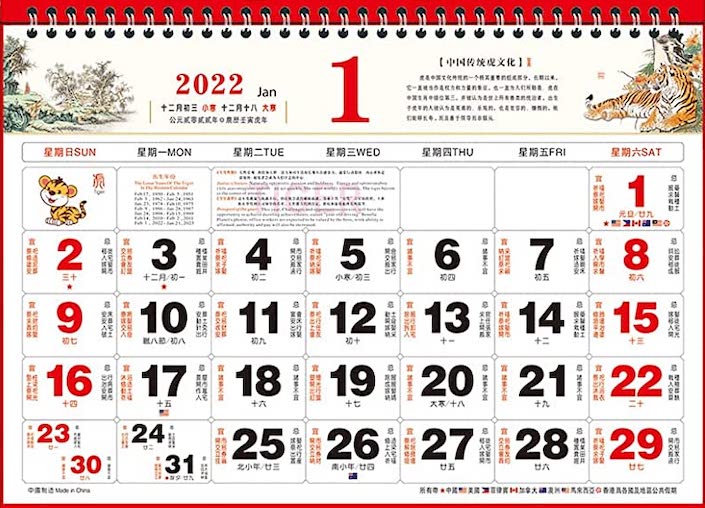Your Guide to the Year of the Monkey
 Tania Yeromiyan
Tania YeromiyanLearn Chinese in China or on Zoom and gain fluency in Chinese!
Join CLI and learn Chinese with your personal team of Mandarin teachers online or in person at the CLI Center in Guilin, China.
The Chinese zodiac and its 12 associated zodiac animals are an important aspect of Chinese traditional culture. Even if you weren’t born in the Year of the Monkey yourself, chances are that you know at least one person who was. Join us as we explore some of the fascinating traditions associated with the Chinese Year of the Monkey.

Table of Contents
When is the Year of the Monkey?
The Chinese Calendar follows a luni-solar system that operates on a 12-year cycle, with each year marking a new Chinese zodiac sign. There are 12 different zodiac animals in total, and the monkey is the ninth animal in the 12-year rotation.
In Chinese astrology, the year in which one is born determines one’s zodiac sign. Therefore, anyone born in 1956, 1968, 1980, 1992, 2004, 2016 was born under the monkey zodiac sign.
The exact start and end dates for the Chinese New Year fluctuate every year due to the fact that they are calculated based on the traditional Chinese calendar. The next Year of the Monkey will begin on January 26th, 2028 and end on February 12th, 2029.
View this post on Instagram
The Monkey in Chinese culture
The origins of the Year of the Monkey
According to legend, the Chinese zodiac came into being after the Jade Emperor declared that the first 12 animals to cross to the other side of a mighty river would have a year named after them. This event is known as The Great Race.
During the race to cross the river, the Monkey cooperated with the Rooster and Goat in order to reach the finish line. The Rooster built a raft for the three of them, while the Goat and the Monkey carried the raft to the edge of the water and cleared away the obstacles they met along the way.
With the help of his friends, the Monkey finished the race in 9th place, and is therefore the 9th sign of the Chinese zodiac.
Monkey personality traits
People born under the monkey zodiac sign are believed to be natural “go-getters” who are almost always willing to take initiative no matter what situation they find themselves in.
They are believed to be sociable, clever and witty and they place great importance on organizational skills. They usually excel at a variety of subjects, especially anything artistic. They are also incredibly intuitive and have the gift of foresight.
As with everything else in life, each of the Chinese zodiac signs also has some negative aspects associated with it.
When it comes to people born under the Monkey zodiac sign, they can be extremely opinionated and stubborn, and believe their own views to be morally superior to those held by others. They can also be extremely neurotic and impulsive and become alarmed, angered and stressed easily.

The Monkey zodiac sign is associated with personality traits like sociability and cleverness.
Compatibility with other signs
The Monkey is the most compatible with the Dragon and the Rat. The Dragon shares the Monkey’s curiosity and excitement for life. They are both positive and lively, so there is never a dull moment between people who share these two zodiac signs.
The Rat always brings out the merits and strengths of the Monkey’s personality, allowing the Monkey to take the lead. They are also both witty and a little mischievous, creating fun relationships.
The Monkey is least compatible with the Tiger and Pig. The Tiger and Monkey can both be grandiose and ego-centric, creating tension and competition. The Tiger views the Monkey as cunning and deceitful while the Monkey regards the Tiger as very controlling.
The Pig is considered “less smart” in comparison to the Monkey, and their lifestyle choices aren’t exactly compatible. The Monkey sees the Pig as too lazy, whereas the Pig views the Monkey as too serious and controlling.
The unlucky 本命年 (běnmìngnián)
Every Year of the Monkey constitutes a 本命年 (běnmìngnián), which roughly translates to “natal year,” for everyone born under the Monkey zodiac sign. One’s natal year marks the time when one has finished passing through another 12-year zodiac cycle and has again reached his or her own zodiac year.
In general, during one’s 本命年 (běnmìngnián) it is considered ill-advised to make big moves in one’s career or life such as starting a new business, moving to a new home, or getting married. This is because in Chinese astrology, one’s natal year is considered unlucky.
Fortunately, there are a few things you can do in order to ward off the possibility of bad luck during your natal year:
Tip one: Wear red
Historically, red has always been an incredibly important and auspicious color in Chinese culture. It is also a lucky color, and it is believed that you can fight off bad luck by wearing red underwear during the entirety of your 本命年 (běnmìngnián). If you were born in the Year of the Monkey, that means you should remember to wear red underwear throughout the year 2028, which will be your next natal year.

Red is considered to be a lucky and festive color in Chinese culture.
Tip two: Auspicious jewelry
Another way to fight off bad luck during your natal year is to wear jewelry that contains a small pendant representing your zodiac animal (in this case, a cute little monkey!). Another option is to wear Jade – in Chinese culture, Jade symbolizes prosperity and success, so it is a great way to ensure good luck during your 本命年 (běnmìngnián).
However, you must be gifted these lucky pieces of jewelry in order for them to work. Unfortunately, you cannot buy them for yourself.
Another protective option is to wear a pendant representing a mythical animal called a 貔貅 (píxiū). The 貔貅 (píxiū) is a hybrid of a lion and dragon that can repel evil spirits and attract good luck.
2028: The year of the Earth Monkey
Aside from being associated with one of the 12 animals of the Chinese zodiac, each new Chinese year is also associated with one of the five elements. The Chinese traditional calendar can be quite complex, but in short, it operates on a sexagenary (60-year) cycle which consists of 10 heavenly stems (干 gàn) and 12 earthly branches (支 zhī). These in total can create 60 stem-branch combinations, with each combination assigned to one of the five elements (fire, water, wood, metal and earth).
Since the year of the Monkey in 2028 falls on the 45th year of the sexagenary cycle, it marks the 戊申 (wùshēn) stem-branch combination that represents the yang earth element. Thus, 2028 will be the Year of the Earth Monkey.

The next Year of the Monkey will arrive with the start of Chinese New Year 2028.
Chinese New Year and the Year of the Monkey
Celebrating Chinese New Year is a great way to immerse yourself in Chinese culture. By learning more about the zodiac signs, you will gain a deeper cultural understanding of the role of Chinese astrology in modern Chinese holidays and in daily life.
If you happen to be in China during Chinese New Year, also called Spring Festival, you’re likely to notice that many festive new year’s decorations feature the Chinese zodiac animal associated with the new year that’s coming up. You may even receive a Chinese hongbao or two!
If the upcoming year is the Year of the Monkey, expect to see bright red images of monkeys everywhere.
Prepare yourself for the next round of Chinese New Year celebrations and discover more about Chinese culture by learning some Chinese New Year greetings, or better yet, enrolling in some online Chinese classes!

Chinese zodiac animals like the monkey play an important role in modern Chinese culture.
Year of the Monkey vocabulary
| Chinese | Pinyin | English |
|---|---|---|
| 属猴 | shǔ hóu | to be of the Monkey zodiac sign |
| 生肖 | shēngxiào | zodiac animal |
| 优点 | yōudiǎn | advantages/strengths |
| 多面手 | duōmiànshǒu | multi-talented, versatile |
| 善于 | shànyú | to be good at (sth) |
| 善于应酬 | shànyú yìngchóu | good at social niceties |
| 进取心 | jìnqǔxīn | initiative |
| 预测 | yùcè | to predict, to foresee |
| 缺点 | quēdiǎn | disadvantage/shortcoming |
| 神经质 | shénjīngzhì | neurotic |
| 性急 | xìngjí | impatient |
| 惊慌 | jīnghuāng | to panic, to be alarmed |
| 农历 | nóngli | Chinese lunisolar calendar |
| 渡河 | dùhé | to cross a river |
| 赛跑比赛 | sàipǎo bǐsài | race |

Tania Yeromiyan is the Marketing Manager at the Chinese Language Institute (CLI). She holds a BA in Arabic and Chinese with First Class Honours from the University of Leeds, where she spent two years studying abroad in Taiwan and Egypt. Tania studied Beijing Opera at the Shanghai Theatre Academy and placed third in the UK's 14th "Chinese Bridge" Language Proficiency Competition. Before her current role, she served as CLI's Admissions Manager for five years, working with thousands of students preparing to study Chinese in China. She is fluent in Chinese and travels to China annually.














